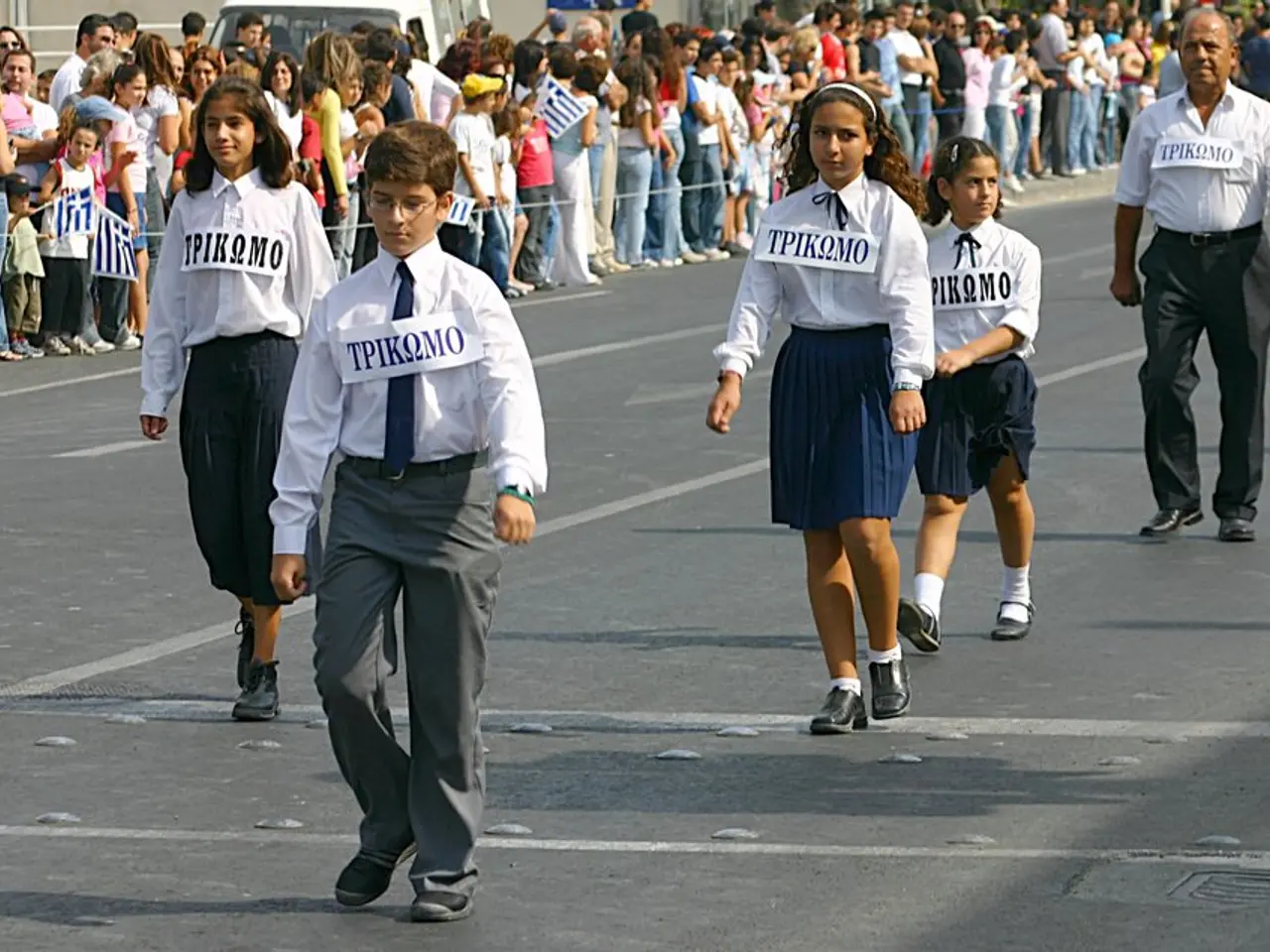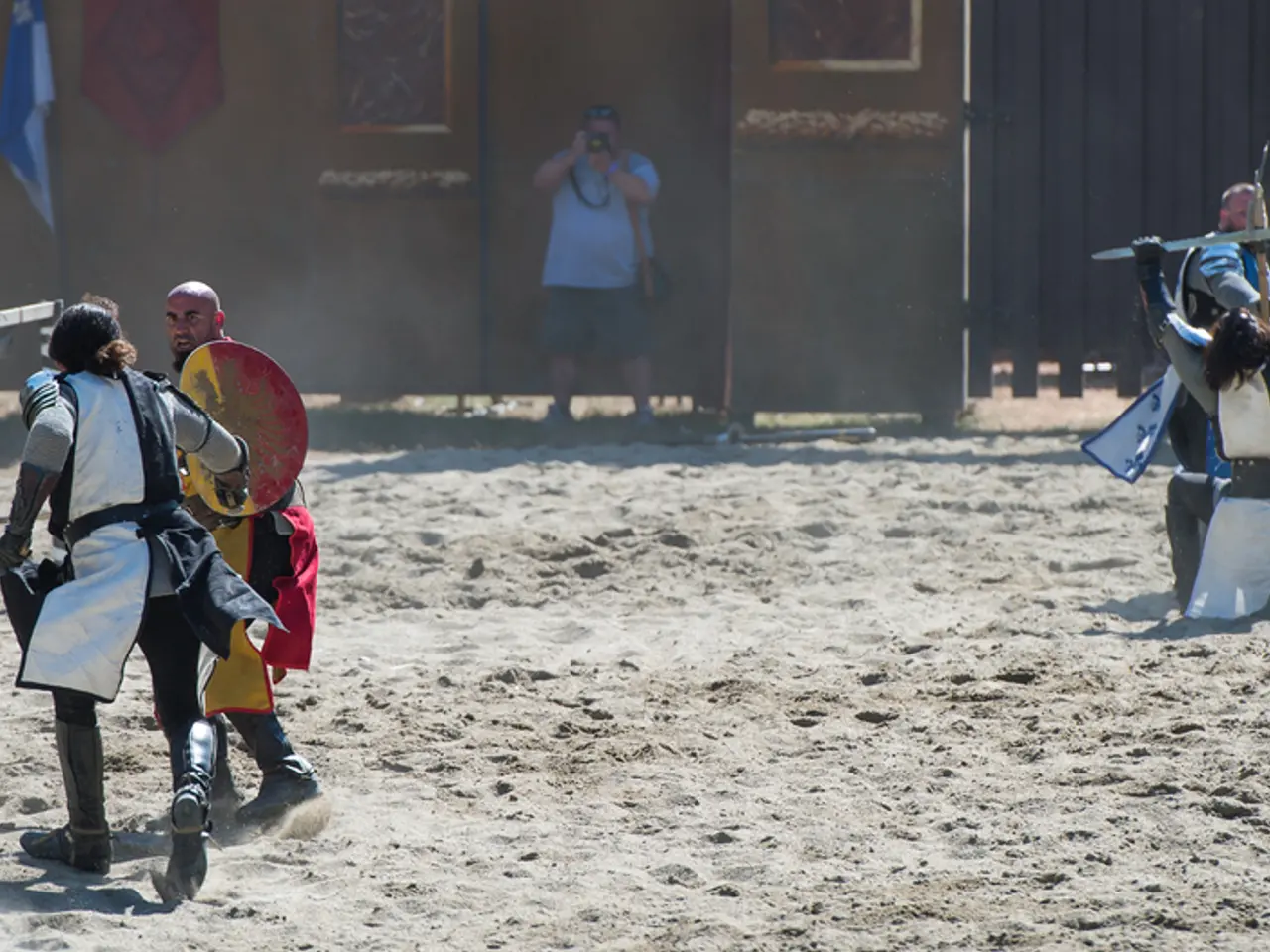Five Notable Athletes Suffering from Dementia
In the world of sports, physical fitness and prowess are often synonymous with invincibility. However, a growing body of research suggests that even the most robust athletes may not be immune to the debilitating effects of Alzheimer's disease and other forms of dementia.
Alzheimer’s disease in athletes is primarily studied in the context of brain damage from repeated head trauma, particularly in contact and combat sports. This link is most evident in sports like American football, boxing, mixed martial arts, hockey, and soccer, where frequent brain trauma can lead to a related progressive brain disease known as chronic traumatic encephalopathy (CTE). CTE, which increases the risk of dementia, shares symptoms that can resemble Alzheimer's.
Key known causes and risk factors in athletes include repeated concussions and head impacts, genetic predispositions, and socioeconomic factors. For instance, certain gene variants, such as ApoE4 (the “Alzheimer’s gene”), have been linked to poorer outcomes after concussions and increased vulnerability to neurodegeneration, including Alzheimer’s-like symptoms.
Researchers are currently focusing on differentiating and diagnosing CTE versus Alzheimer’s disease, investigating genetic risk factors, exploring the influence of sport type, frequency, and severity of head trauma on long-term cognitive impairment, and assessing how social determinants of health interact with brain injury to exacerbate neurodegeneration risk in athletes from marginalized communities. They are also working on developing improved diagnostic criteria and biomarkers for early detection, as CTE can only be diagnosed definitively postmortem.
Sadly, the impact of these diseases on the lives of athletes is all too evident. In 1999, Bill Quackenbush, a Canadian professional ice hockey defenseman who played for major teams like the Boston Bruins and Detroit Red Wings, died of complications from pneumonia and Alzheimer's disease. Similarly, Joe Adcock, a major league baseball player known for his right-handed power hitting, was diagnosed with Alzheimer's disease, although his family chose not to make it public.
Other high-profile athletes, such as Sugar Ray Robinson, an American professional boxer considered one of the best boxers of all time, and Tom Fears, a Mexican-American football player who played nine seasons for the Los Angeles Rams in the National Football League (NFL), have also been diagnosed with the disease.
Dementia is a mystery as to why it affects high-profile and physically fit individuals. As research continues, it becomes increasingly clear that the risk factors for dementia in athletes are complex, involving both genetic and environmental factors. Ongoing research aims to distinguish these diseases better, identify risk modifiers, and inform preventive strategies in contact sports.
In Hawaii, the number of people aged 65 years and older with Alzheimer's disease is expected to increase from the current 29,000 to 35,000 by 2025. This underscores the urgent need for continued research and awareness about the link between sports, brain injuries, and dementia.
As we remember the lives of these athletes, it is crucial to acknowledge the importance of understanding and addressing the long-term health implications of sports-related brain injuries. The future of sports may lie in better protective equipment, safer rules, and a greater emphasis on preventing and treating these debilitating diseases.
- Despite their physical fitness, athletes may develop dementia due to neurological disorders like Alzheimer's disease, primarily from repeated head trauma, especially in contact and combat sports.
- Genetic predispositions, such as the ApoE4 gene variant, have been linked to increased vulnerability to neurodegeneration and poorer outcomes after concussions in athletes, which could lead to Alzheimer's-like symptoms.
- Research is currently focused on differentiating CTE from Alzheimer's disease, investigating genetic risk factors, examining the influence of sport type, frequency, and severity of head trauma on long-term cognitive impairment, and assessing how social determinants of health interact with brain injury to exacerbate neurodegeneration risk in athletes from marginalized communities.








